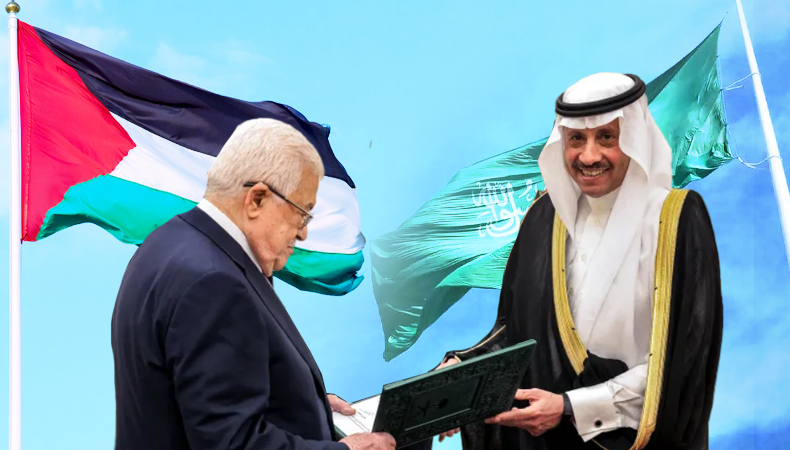Saudi Arabia’s New Envoy: A Shift in Regional Diplomacy

The choice of Nayef al- Sudairi to represent Saudi Arabia in the Palestinian Authority represents a substantial shift from the country’s former policy on the Israeli- Palestinian conflict. While exploring amending ties with Israel, the Saudi administration has emphasized the significance of the Palestinian state- building process.
Saudi Arabia’s Shifting Diplomatic Approach
The visit is viewed as an effort to resolve a significant issue in the Saudi- Israeli normalization agreement- Saudi Arabia’s protracted support for the Palestinian cause. To maintain a balance of power in the area, particularly in light of implicit pitfalls from Iran, Saudi Arabia is seeking a defence agreement with the United States as well as support in constructing a mercenary nuclear programme
Keep Reading
Palestinian Reactions and Aspirations
Officers from the Palestinian Authority welcomed al- Sudairi’s visit, demonstrating their desire for further autonomy and a agreement of the Israeli- Palestinian issue. Mahmoud Abbas, the president of Palestine, emphasized how pivotal it’s to uphold the Palestinian struggle and secure their” full and lawful public rights.”
Challenges and Future Prospects
A comprehensive deal is still not possible, nevertheless. Giving the Palestinians further autonomy or making negotiations in the West Bank would be extremely delicate under Israeli Prime Minister Benjamin Netanyahu’s government’s staunchly nationalist programs.
Saudi Arabia’s decision to consign an envoy to the Palestinian Authority and its diplomatic efforts on behalf of the Palestinian cause signal a change in the nation’s policy. Not only is this action significant for Saudi- Israeli ties, but it also bodes well for the advancement of prospects for a peaceful agreement of the Israeli- Palestinian problem. To estimate the possible effects of these diplomatic endeavours, close attention must be paid to how the local dynamics are changing.






